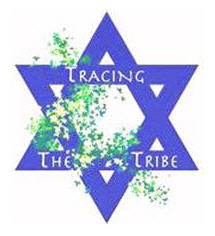Do we need a national day to convince people that their names were not changed at Ellis Island? How can we convince people that the romantic myths in their family are simply that - a myth?
No one's name was "stolen," "changed," "Anglicized," "transliterated" or "translated" by an Ellis Island clerk, as stated in a New York Times story and reader comments (see below). Marion Smith of the CIS has always stressed that not one documented case of such an action has ever been found. It is strange that Smith is quoted in this New York Times story (see below) and did not provide that information - or wasn't asked the right question.
Passenger lists were compiled from immigrants' documents before embarkation. Such documents included ship tickets, passports or other travel papers. At Ellis Island, the clerks merely checked off the names from the list.
Every once in a while, another writer or publication - which should know better - stirs up the issue again providing misinformation. This time it was Sam Roberts and the New York Times.
Also perpetuating the myth is a photo caption in the story: An undated photograph from Ellis Island, where officials sometimes transliterated the surnames of immigrants. No, they didn't. The list was written prior to embarkation, and the Ellis Island staff included many who were immigrants themselves and who spoke nearly every language in the world. Since names were merely checked off the list, there was no opportunity to transliterate names.
However, as most genealogists know, there was nothing to prevent an immigrant from changing a surname the minute they set foot in the city. Some had previous relatives who had already changed the name an the newcomer adopted that name. Some were helped to immigrate by relatives and changed their surname to that of the relative who helped.
In my own family, four TALALAI brothers were brought to Philadelpha in the first decade of the 1900s, by their brother-in-law FEINSTEIN. They were so appreciative that they changed their surname to FEINSTEIN. We cannot find them, so if you know of any FEINSTEIN who were TALALAI, please let me know.
In 1898, when Max (Mendl) TALALAI arrived from Mogilev, Belarus, he had already decided on a new name. On the ship coming over, a fellow passenger who knew some English advised him to change it immediately upon arrival. "No one," he said, "would give a job to a Mr. Tell-a-Lie."
Max, the first relative to arrive, wrote home to Mogilev and Voratinschtina and told all the relatives that their new name was now TOLLIN. Most changed to that name after their arrival, although we do have some TALLIN, TOLL, TALL and TAYLOR.
And, of course, FEINSTEIN. A family joke was that perhaps they wanted a less Jewish name than TALALAI.
Other than perpetuating this myth, the story - "New Life in America No Longer Means a New Name" - is excellent as it addresses name changing by immigrants and the reasons why.
For many 19th- and 20th-century immigrants or their children, it was a rite of passage: Arriving in America, they adopted a new identity.According to the story, the paper looked at more than 500 applications during June at New York's Civil Court. Only some six intended to Anglicize or shorten original surnames; most did it because of marriage, childbirth or other reasons.
Charles Steinweg, the German-born piano maker, changed his name to Steinway (in part because English instruments were deemed to be superior). Tom Lee, a Tong leader who would become the unofficial mayor of Chinatown in Manhattan, was originally Wong Ah Ling. Anne Bancroft, who was born in the Bronx, was Anna Maria Louisa Italiano.
The rationale was straightforward: adopting names that sounded more American might help immigrants speed assimilation, avoid detection, deter discrimination or just be better for the businesses they hoped to start in their new homeland.
Iyata Ishimabet Maini Valdene Archibald of Brooklyn changed her name to Ishimabet Makini Valdene Bryce. Guo Wi Chan of Forest Hills, Queens, changed his to Ryan Guowei Chan. And after Jing Qiu Wu, the Flushing, Queens, mother of 5-year-old Star Jing Garcia, divorced, she renamed her daughter Star Rain Wu, dropping her husband’s surname.The US is much more diverse culturally than it was a long time ago, and there's less pressure to fit in. In fact, reminds the author, ethnic identity may be an asset for certain reasons, such as affirmative action programs.
In regards to the "name changed at Ellis Island" myth, Marian Smith, CIS senior historian is quoted, but not on this subject. Perhaps Smith wasn't asked the right question about that myth.
Now for the part of the story that the author and, in fact, the New York Times should have known better:
A century or so ago, some names were simplified by shipping agents as immigrants boarded ships in Europe. Others were transliterated, but rarely changed, by immigration officials at Ellis Island. Many newcomers changed their names legally, from Sapusnick to Phillips (“difficulty in pronouncing name, interferes with their business,” according to a legal notice), Laskowsky to Lake (“former name not American”) and from Katchka to Kalin (Katchka means duck in Yiddish and a particular Mr. Katchka was “subjected to ridicule and annoyance because of this”).There's also a modicum of humor in the article concerning legal name changes. While most requests were generally granted, one case seems to have been simply bad luck as to the assigned judge:
... as recently as 1967, a Civil Court judge in Brooklyn refused to change Samuel Weinberg’s family name to Lansing “for future business reasons, such that my sons shall not bear any possible stigma.” The judge’s name was Jacob Weinberg.The story continues and touches on some celebrities, ethnic individuals wishing to retain their names after marriage, easier names or spellings adopted.
Author Sam Roberts’s grandfather arrived as Samuel Rabinowitz, then Rubin and tchanged it to Roberts.
Read the complete story and all the comments.





































No comments:
Post a Comment